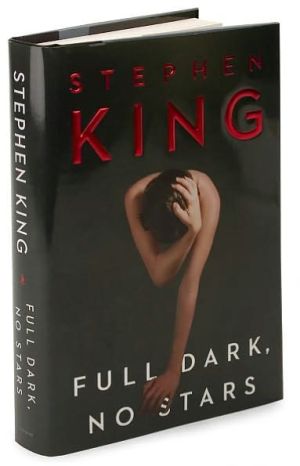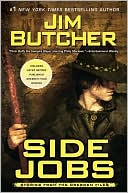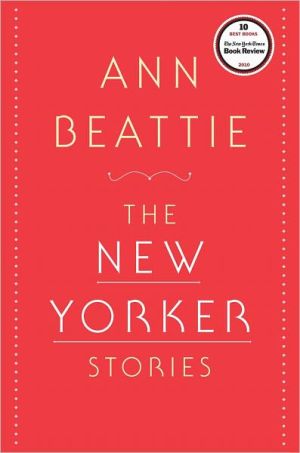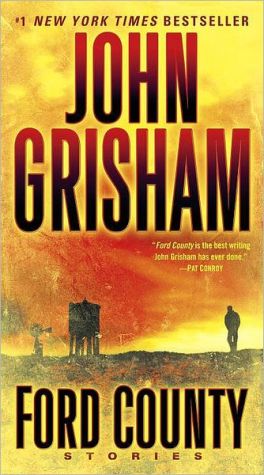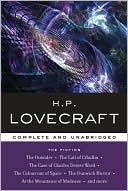Selected Stories
Spanning almost thirty years and settings that range from big cities to small towns and farmsteads of rural Canada, this magnificent collection brings together twenty-eight stories by a writer of unparalleled wit, generosity, and emotional power. In her Selected Stories, Alice Munro makes lives that seem small unfold until they are revealed to be as spacious as prairies and locates the moments of love and betrayal, desire and forgiveness, that change those lives forever. To read these...
Search in google:
Spanning almost thirty years and settings that range from big cities to small towns and farmsteads of rural Canada, this magnificent collection brings together twenty-eight stories by a writer of unparalleled wit, generosity, and emotional power. In her Selected Stories, Alice Munro makes lives that seem small unfold until they are revealed to be as spacious as prairies and locates the moments of love and betrayal, desire and forgiveness, that change those lives forever. To read these stories—about a traveling salesman and his children on an impromptu journey; an abandoned woman choosing between seduction and solitude—is to succumb to the spell of a writer who enchants her readers utterly even as she restores them to their truest selves.Publishers WeeklyA literature-lover's feast, this phenomenal collection of 28 short stories, selected from seven collections that span three decades, showcases Munro's mastery of the form, her vibrantly evocative prose and her undiluted, incisive vision of human nature. Almost without exception, the tales are set in western Canada, from the small-town and farm life of the Lake Huron region to the cultivated suburbs of Vancouver. Most take place in earlier decades, starting with the Depression era. One of Munro's great gifts is that she renders her settings both palpably specificlike one small town's "maple trees whose roots have cracked and heaved the sidewalk and spread out like crocodiles into the bare yards"and universally accessible. In the opening story, "Walker Brothers Cowboy," a young girl accompanies her salesman father on his rounds through rural Canada in the 1930s. A surprise visit to one of his old girlfriends reveals his hidden, fun-loving past, and the girl poignantly weighs her mother's disappointments in marrying her father against this old girlfriend's in losing him. "Material" strikes a very different tone: the narrator, the ex-wife of a reasonably well-known contemporary writer and professor, reads a recent short story of his that, to her surprise, affects her deeply (even though she wryly deconstructs his author bio as filled with "half-lies"). Having doubted that he would ever be a good writer, she is suddenly envious that he can take a lifetime of memoriesmere "useless baggage" for herand create something from them, while she sacrificed her writing ambitions to deal with the mundanities of life. Munro's stories are always trenchant, finely modulated and truly brilliant meditations on peoples' complexities and the emotions they contend withsometimes ruefully, sometimes in pain, but most often with stoic dignity. 40,000 first printing. (Oct.)
From “Differently”\ \ Georgia got a part-time job in a bookstore, working several evenings a week. Ben went away on his yearly cruise. The summer turned out to be unusually hot and sunny for the West Coast. Georgia combed her hair out and stopped using most of her makeup and bought a couple of short halter dresses. Sitting on her stool at the front of the store, showing her bare brown shoulders and sturdy brown legs, she looked like a college girl — clever but full of energy and bold opinions. The people who came into the store liked the look of a girl — a woman — like Georgia. They liked to talk to her. Most of them came in alone. They were not exactly lonely people, but they were lonely for somebody to talk to about books. Georgia plugged in the kettle behind the desk and made mugs of raspberry tea. Some favored customers brought in their own mugs. Maya came to visit and lurked about in the background, amused and envious.\ \ “You know what you’ve got?” she said to Georgia. “You’ve got a salon! Oh, I’d like to have a job like that! I’d even like an ordinary job in an ordinary store, where you fold things up and find things for people and make change and say thank you very much, and colder out today, will it rain?”\ \ “You could get a job like that,” said Georgia.\ \ “No, I couldn’t. I don’t have the discipline. I was too badly brought up. I can’t even keep house without Mrs. Hanna and Mrs. Cheng and Sadie.”\ \ It was true. Maya had a lot of servants, for a modern woman, though they came at different times and did separate things and were nothing like an old-fashioned household staff. Even the food at her dinner parties, which seemed to show her own indifferent touch, had been prepared by someone else.\ \ Usually, Maya was busy in the evenings. Georgia was just as glad, because she didn’t really want Maya coming into the store, asking for crazy titles that she had made up, making Georgia’s employment there a kind of joke. Georgia took the store seriously. She had a serious, secret liking for it that she could not explain. It was a long, narrow store with an old-fashioned funnelled entryway between two angled display windows. From her stool behind the desk Georgia was able to see the reflections in one window reflected in the other. This street was not one of those decked out to receive tourists. It was a wide east-west street filled in the early evening with a faintly yellow light, a light reflected off pale stucco buildings that were not very high, plain storefronts, nearly empty sidewalks. Georgia found this plainness liberating after the winding shady streets, the flowery yards and vine-framed windows of Oak Bay. Here the books could come into their own, as they never could in a more artful and enticing suburban bookshop. Straight long rows of paperbacks. (Most of the Penguins then still had their orange-and-white or blue-and-white covers, with no designs or pictures, just the unadorned, unexplained titles.) The store was a straight avenue of bounty, of plausible promises. Certain books that Georgia had never read, and probably never would read, were important to her, because of the stateliness or mystery of their titles. In Praise of Folly. The Roots of Coincidence. The Flowering of New England. Ideas and Integrities.\ \ Sometimes she got up and put the books in stricter order. The fiction was shelved alphabetically, by author, which was sensible but not very interesting. The history books, however, and the philosophy and psychology and other science books were arranged according to certain intricate and delightful rules — having to do with chronology and content — that Georgia grasped immediately and even elaborated on. She did not need to read much of a book to know about it. She got a sense of it easily, almost at once, as if by smell.\ \ At times the store was empty, and she felt an abundant calm. It was not even the books that mattered then. She sat on the stool and watched the street — patient, expectant, by herself, in a finely balanced and suspended state.\ \ She saw Miles’ reflection — his helmeted ghost parking his motorcycle at the curb — before she saw him. She believed that she had noted his valiant profile, his pallor, his dusty red hair (he took off his helmet and shook out his hair before coming into the store), and his quick, slouching, insolent, invading way of moving, even in the glass.\ \ It was no surprise that he soon began to talk to her, as others did. He told her that he was a diver. He looked for wrecks, and lost airplanes, and dead bodies. He had been hired by a rich couple in Victoria who were planning a treasure-hunting cruise, getting it together at the moment. Their names, the destination were all secrets. Treasure-hunting was a lunatic business. He had done it before. His home was in Seattle, where he had a wife and a little daughter.\ \ Everything he told her could easily have been a lie.\ \ He showed her pictures in books — photographs and drawings, of mollusks, jellyfish, the Portuguese man-of-war, sargasso weed, the Caribbean flying fish, the girdle of Venus. He pointed out which pictures were accurate, which were fakes. Then he went away and paid no more attention to her, even slipping out of the store while she was busy with a customer. Not a hint of a goodbye. But he came in another evening, and told her about a drowned man wedged into the cabin of a boat, looking out the watery window in an interested way. By attention and avoidance, impersonal conversations in close proximity, by his oblivious prowling, and unsmiling, lengthy, gray-eyed looks, he soon had Georgia in a disturbed and not disagreeable state. He stayed away two nights in a row, then came in and asked her, abruptly, if she would like a ride home on his motorcycle.\ \ Georgia said yes. She had never ridden on a motorcycle in her life. Her car was in the parking lot; she knew what was bound to happen.\ \ She told him where she lived. “Just a few blocks up from the beach,” she said.\ \ “We’ll go to the beach, then. We’ll go and sit on the logs.”\ \ That was what they did. They sat for a while on the logs. Then, though the beach was not quite dark or completely deserted, they made love in the imperfect shelter of some broom bushes. Georgia walked home, a strengthened and lightened woman, not in the least in love, favored by the universe.\ \ “My car wouldn’t start,” she told the baby-sitter, a grandmother from down the street. “I walked all the way home. It was lovely, walking. Lovely. I enjoyed it so much.”\ \ Her hair was wild, her lips were swollen, her clothes were full of sand.\ \ \ From the Hardcover edition.
Walker Brothers Cowboy3Dance of the Happy Shades16Postcard26Images40Something I've Been Meaning to Tell You50The Ottawa Valley67Material81Royal Beatings96Wild Swans115The Beggar Maid124Simon's Luck152Chaddeleys and Flemings171Dulse199The Turkey Season218Labor Day Dinner231The Moons of Jupiter252The Progress of Love266Lichen289Miles City, Montana308White Dump325Fits353Friend of My Youth374Meneseteung392Differently410Carried Away431The Albanian Virgin465A Wilderness Station498Vandals523Bibliographical Note547
\ Publishers Weekly\ - Publisher's Weekly\ A literature-lover's feast, this phenomenal collection of 28 short stories, selected from seven collections that span three decades, showcases Munro's mastery of the form, her vibrantly evocative prose and her undiluted, incisive vision of human nature. Almost without exception, the tales are set in western Canada, from the small-town and farm life of the Lake Huron region to the cultivated suburbs of Vancouver. Most take place in earlier decades, starting with the Depression era. One of Munro's great gifts is that she renders her settings both palpably specificlike one small town's "maple trees whose roots have cracked and heaved the sidewalk and spread out like crocodiles into the bare yards"and universally accessible. In the opening story, "Walker Brothers Cowboy," a young girl accompanies her salesman father on his rounds through rural Canada in the 1930s. A surprise visit to one of his old girlfriends reveals his hidden, fun-loving past, and the girl poignantly weighs her mother's disappointments in marrying her father against this old girlfriend's in losing him. "Material" strikes a very different tone: the narrator, the ex-wife of a reasonably well-known contemporary writer and professor, reads a recent short story of his that, to her surprise, affects her deeply (even though she wryly deconstructs his author bio as filled with "half-lies"). Having doubted that he would ever be a good writer, she is suddenly envious that he can take a lifetime of memoriesmere "useless baggage" for herand create something from them, while she sacrificed her writing ambitions to deal with the mundanities of life. Munro's stories are always trenchant, finely modulated and truly brilliant meditations on peoples' complexities and the emotions they contend withsometimes ruefully, sometimes in pain, but most often with stoic dignity. 40,000 first printing. (Oct.)\ \ \ \ \ Library JournalThe collected stories of Canadian author Munro, whose works often appear in The New Yorker, would probably fill several tomes, but this thoughtful selection will satisfy the choosiest readers. From the little girl in "Walker Brothers Cowboy" who dreads her mother's pretentions but loosens up when her down-but-not-out salesman father takes her on walks to Lake Huron; to Miss Marsalles's suffocating piano recitals ("Dance of the Happy Shades") suddenly illuminated when a retarded girl plays real music; to the heroine of "The Albanian Virgin," a Canadian woman who by accident ends up living amidst tribal people outside of Trieste; to "Vandals," a complicated tale of solitude and resentment that closes the book, Munro creates characters and situations that draw one up short. In one brief instant, the laws don't apply, assumptions are smashed, and the reader is left staring giddily down the whirling black hole of the universe. It would have been nice to see these pieces dated so that we could trace Munro's development more easilythe pieces at least appear to be in roughly chronological orderbut this is an important book for serious readers everywhere.Barbara Hoffert, "Library Journal"\ \

